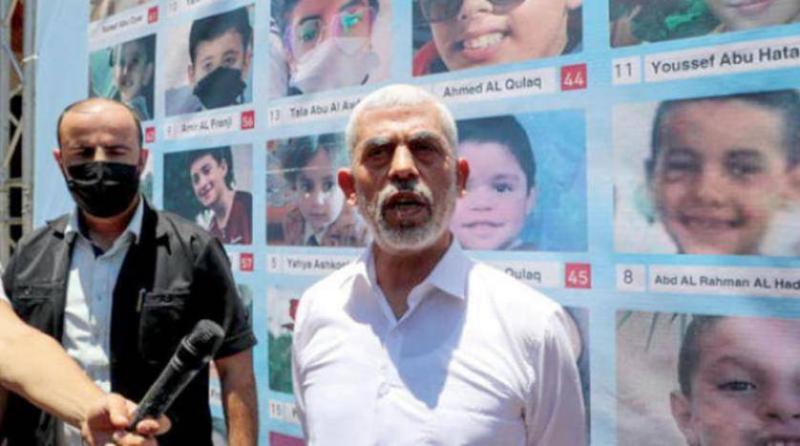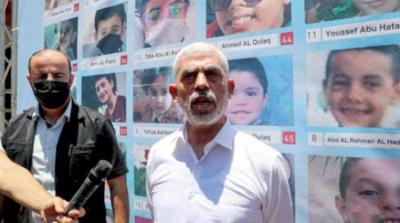Hamas has threatened Israel with immediate war if it targets its leader in the Gaza Strip, Yahya Sinwar, following increasing public calls in Israel for his assassination in response to the ongoing Palestinian operations against Israelis.
A member of Hamas’s political bureau, Ezzet al-Rishq, stated that “the campaign of Israeli threats and incitement to assassinate the head of the movement in Gaza, Yahya Sinwar, or any of the movement's leaders, does not scare us nor does it scare the smallest child in Hamas.” He noted that any attack on Sinwar “would lead to immediate war.”
Al-Rishq further elaborated in a statement published on Hamas's official website, saying, “These threats are a failed attempt to reassure frightened settlers, and they only increase our determination to defend Jerusalem and Al-Aqsa until the occupation is removed from the last inch of our land.”
Al-Rishq's comments came in response to calls from Israeli officials, Knesset members, former military personnel, and media outlets for the assassination of Sinwar, following an operation in Elad near Tel Aviv on Thursday that resulted in the deaths of three Israelis using an axe.
The operation took place just days after Sinwar's speech urging the people of the West Bank to escalate resistance through firearms or hatchets. Israeli media focused on Sinwar's speech as calls for his assassination amplified.
Israeli journalists, writers, and analysts have called for a more serious approach towards Sinwar, emphasizing that he operates under a clear ideology and has managed to reach the heart of Israel.
Military commentator Nir Dvori from Channel 12 remarked that “discussions regarding response methods have taken place in Israel in recent hours, and Israel cannot remain idle when 19 people are killed within six weeks.” He added that the security agencies are looking into the incitement and what Yahya Sinwar said in his speech, and messages were sent through Egyptians and Qataris to indicate that Gaza is not invulnerable. Therefore, it is not certain that the response will remain in the West Bank, as we may see an Israeli operation in other areas.
Sources confirmed to Al-Sharq Al-Awsat that Egypt immediately intervened, conducting intensive communications in Israel and Gaza to defuse any potential escalation and avoid any new war in the region.
The sources stated that Egypt warned Israel against responding in Gaza as there is no evidence linking Gaza or Hamas to the operation, and urged the movement to refrain from verbal or operational escalation.
Egyptians asked Israel to reduce tension as much as possible in Jerusalem and the West Bank, deter extremists, and requested that Hamas stop any form of escalation.
Although Israelis did not inform Egypt that they wanted to assassinate Sinwar, they conveyed that Gaza is not safe amid the current incitement. Hamas responded that any assassination would be met with unexpected responses from Israel.
Israeli Prime Minister Naftali Bennett sent a message to Israeli security after the operation, saying, “Do not worry about any political considerations. We will do whatever must be done, and there are no obstacles in your way. Strike as hard as possible.”
It is unclear whether Bennett meant to strike in the West Bank, in Gaza, or elsewhere, given his prior threats that he would not settle for targeting only the perpetrators of operations but also those who incite them and send them.
Israeli sources indicated that there is a disagreement within the Israeli government regarding whether to launch a military operation, with Bennett leaning towards that option, while Defense Minister Benny Gantz and military leaders oppose it.
According to the Hebrew channel "Reshet Kan," the Israeli political level may impose sanctions on the Gaza Strip, including preventing workers from traveling to work in Israel, which is a policy they briefly tested in response to a rocket fired from the strip. At that time, Israel chose an economic response over a military one.




